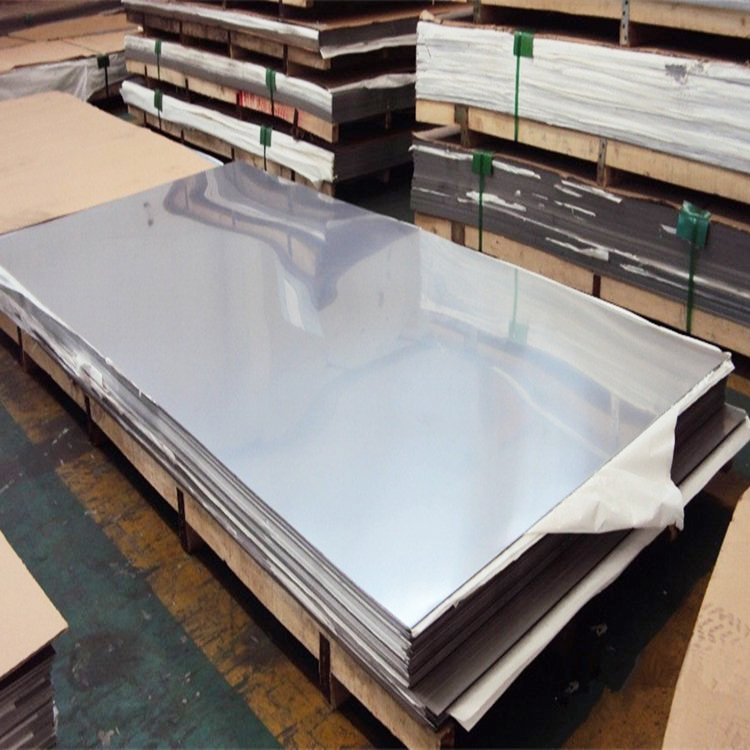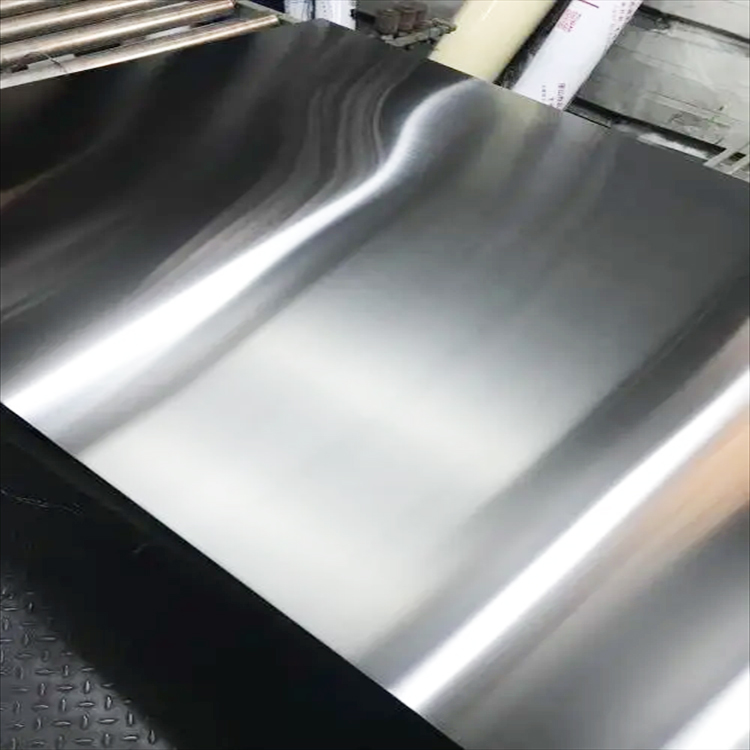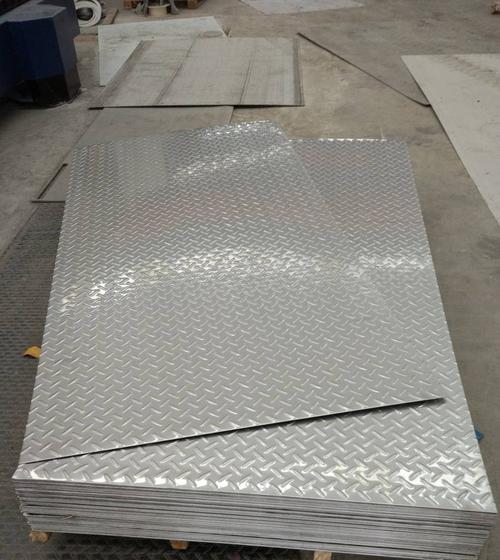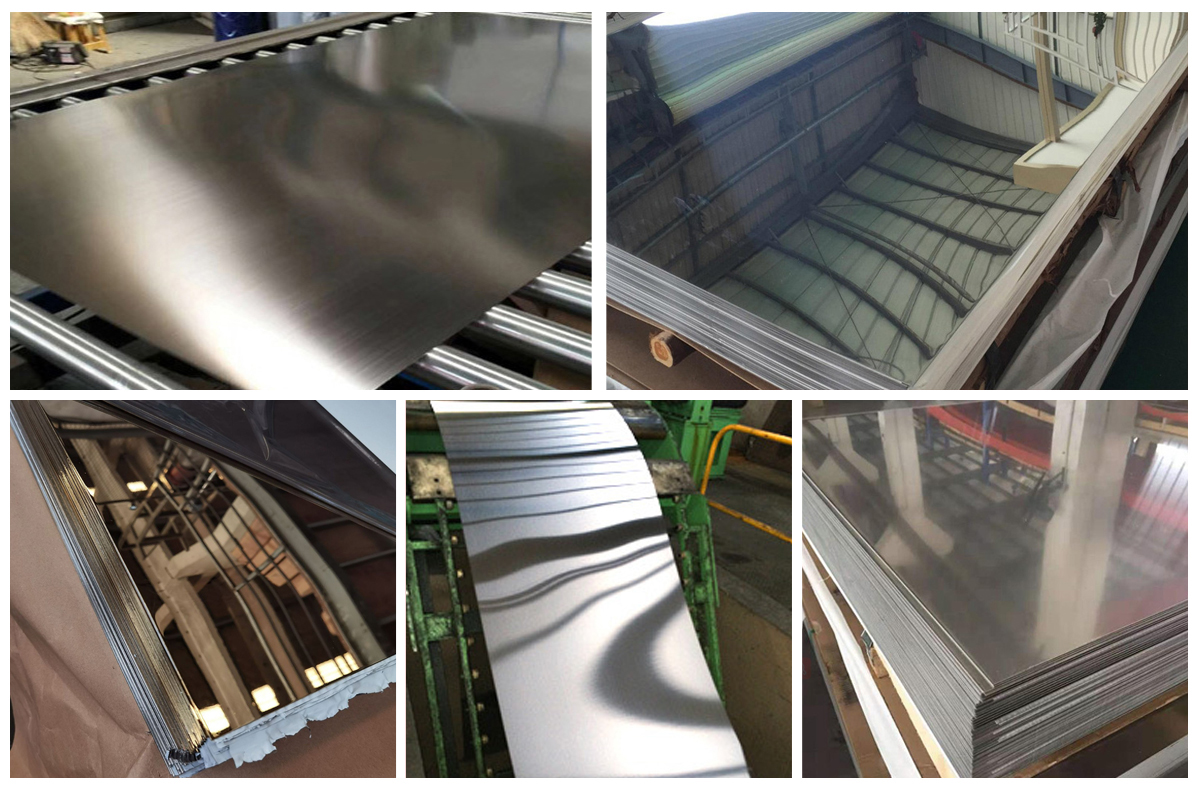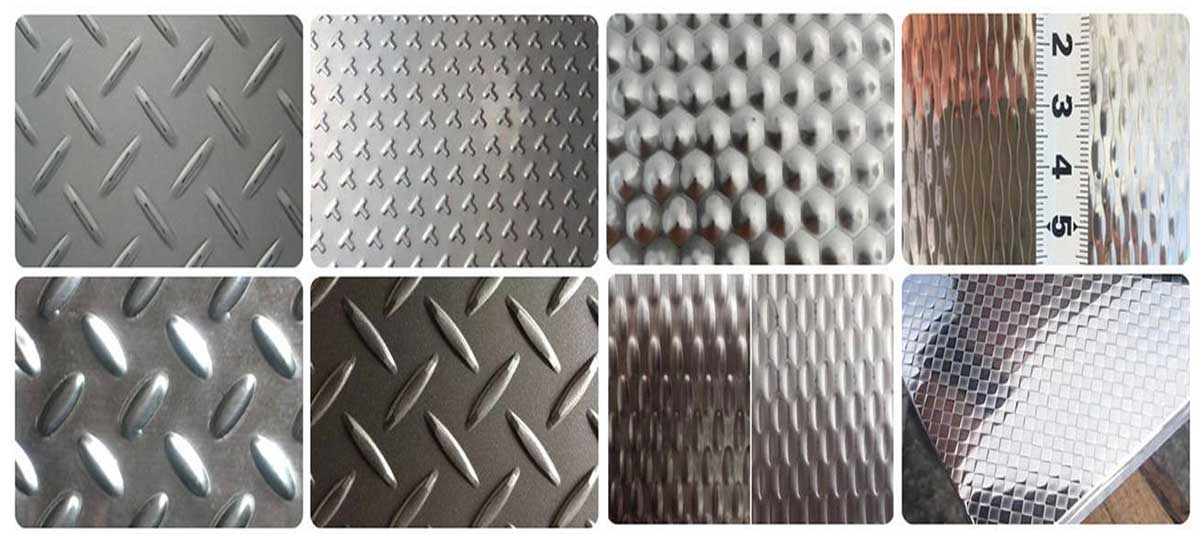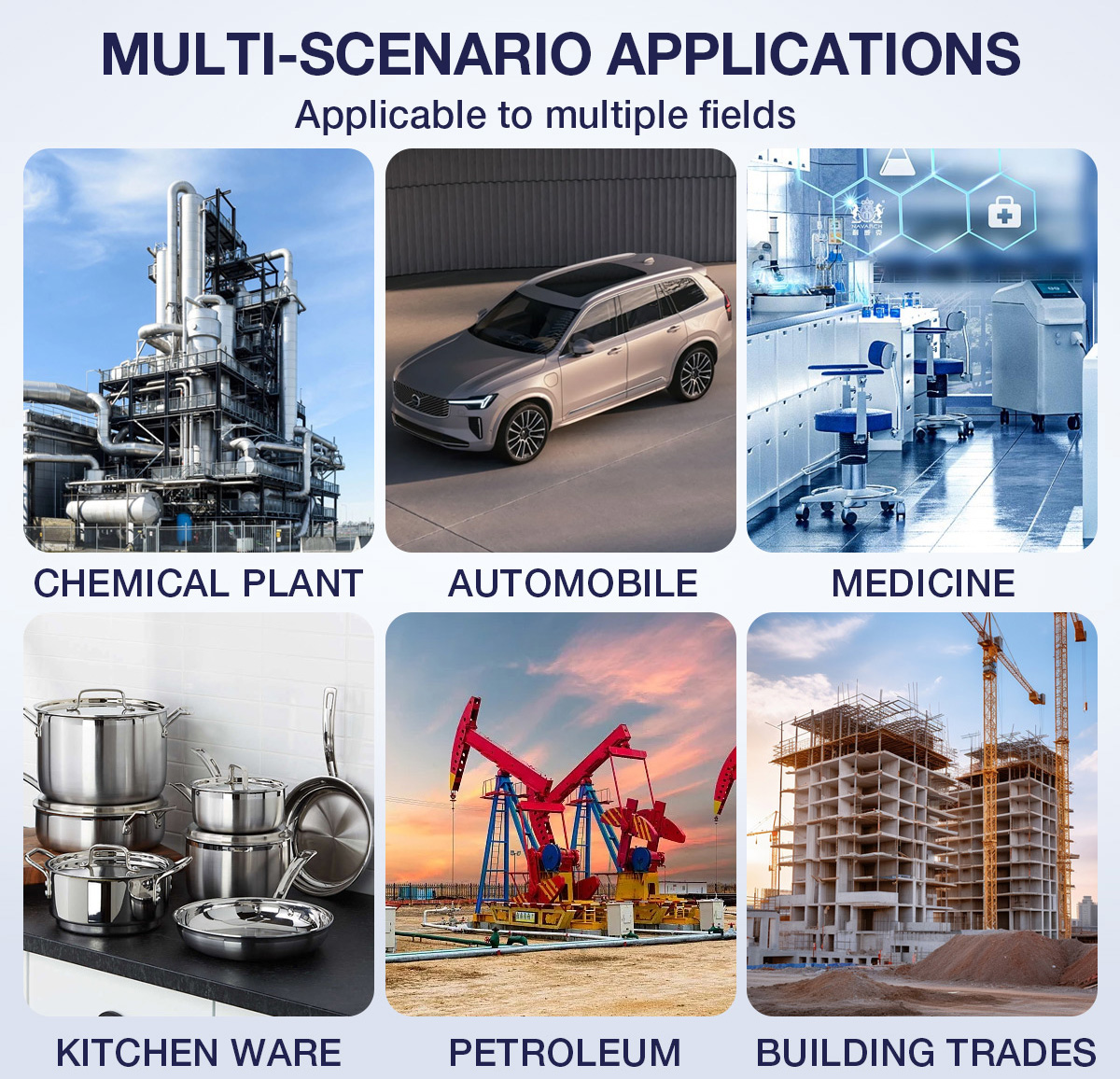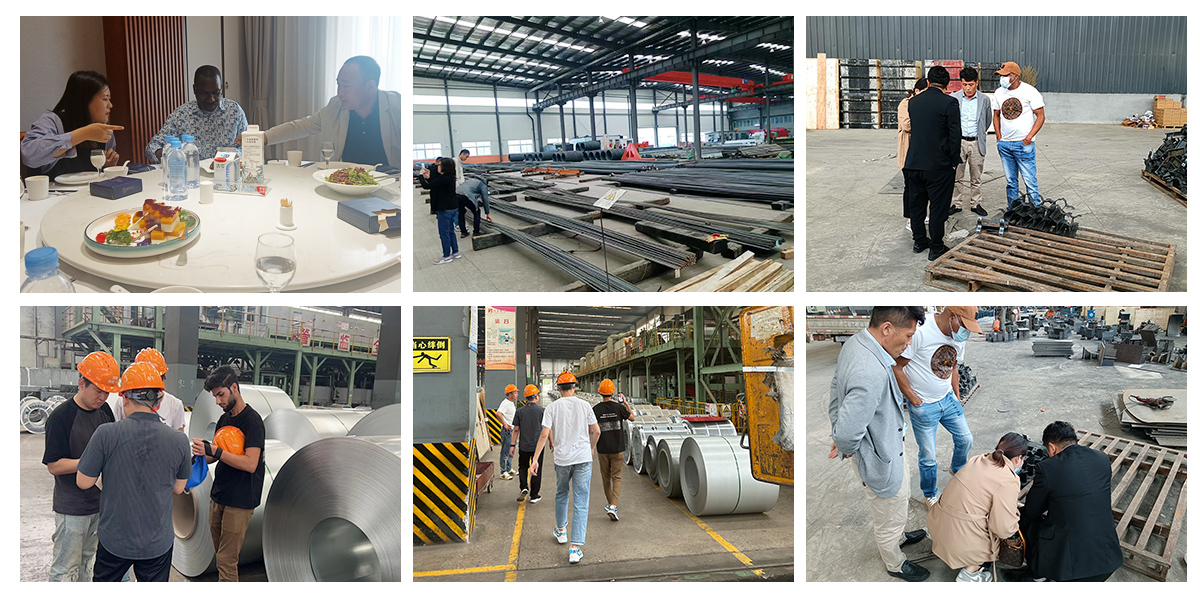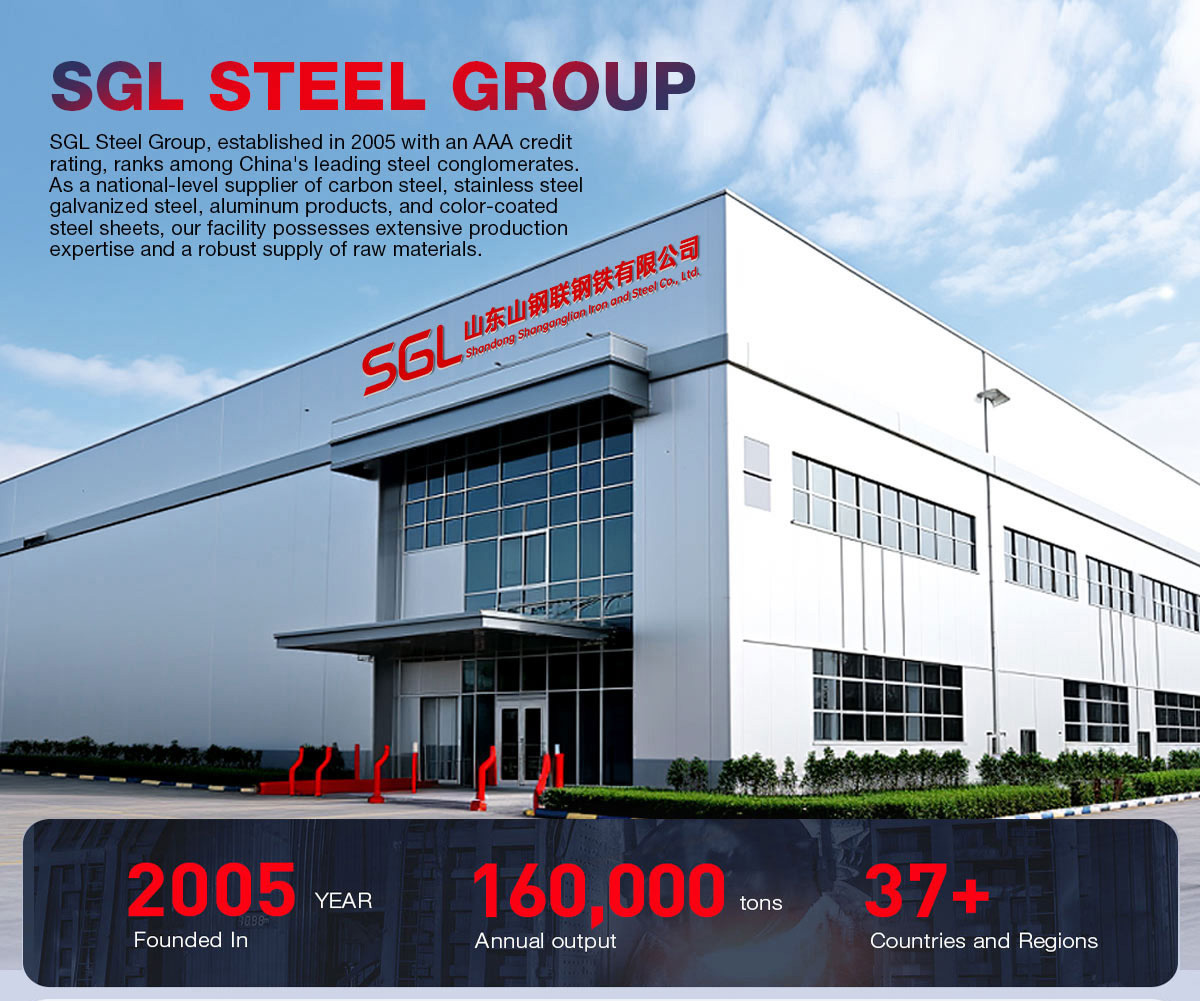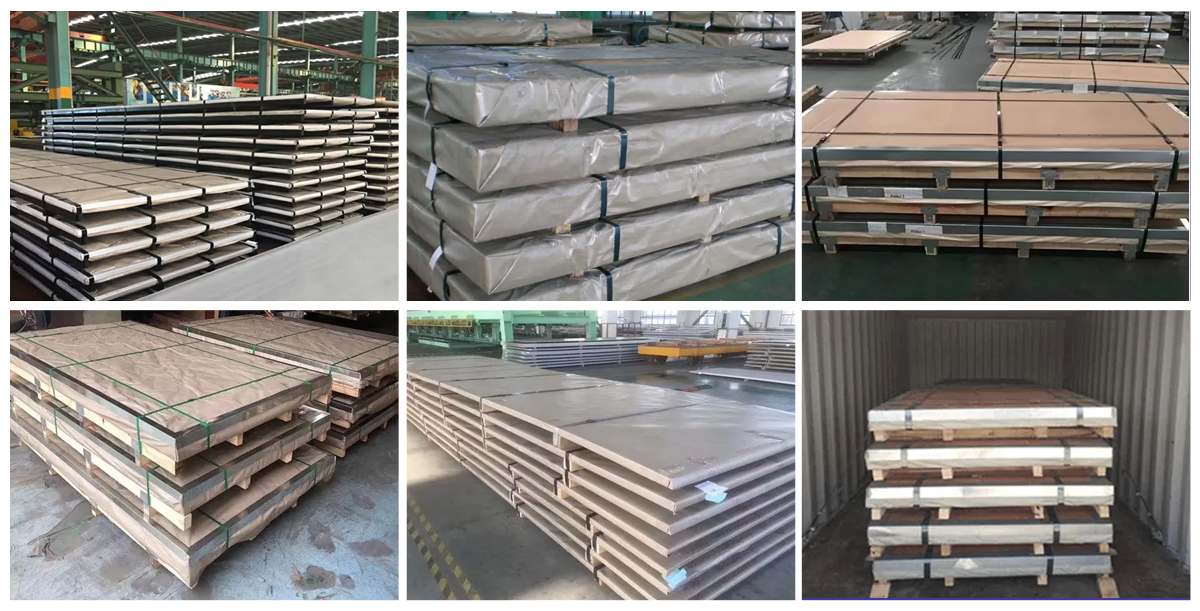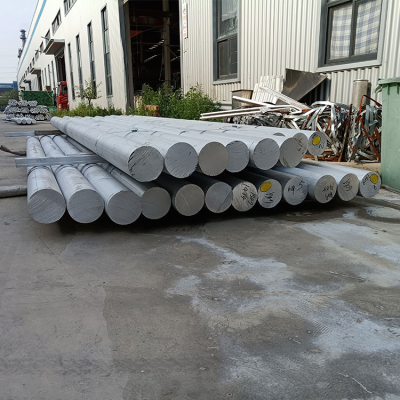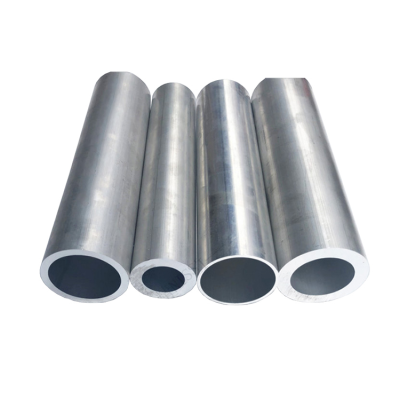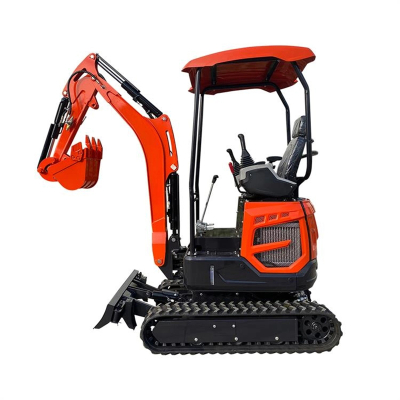304L 321 Stainless steel plate steel Sheet
Excellent Corrosion Resistance – Stainless steel plates offer strong resistance to corrosion from acids, alkaline gases, water, steam, and other chemical solutions. Acid-resistant variants provide additional protection against highly corrosive media such as acids, alkalis, and salts, making them ideal for demanding industrial environments.
High Mechanical Strength and Durability – These plates are known for their superior toughness, plasticity, and overall mechanical performance, ensuring long-term structural reliability and stability in a wide range of applications.
Smooth and Refined Surface – With a naturally smooth surface, stainless steel plates provide both aesthetic appeal and functional benefits, such as easier cleaning, maintenance, and resistance to surface wear.
Wide Variety of Material Grades – Available in multiple types, including martensitic, ferritic, austenitic, duplex, and precipitation-hardened stainless steel plates, allowing customization according to specific performance requirements for industrial, construction, and decorative uses.
Stainless steel plate is generally the general term for stainless steel plate and acid-resistant steel plate. The surface is smooth, has high plasticity, toughness and mechanical strength, and is resistant to corrosion by acids, alkaline gases, solutions and other media. It is an alloy steel that is not easy to rust, but it is not absolutely rust-free. Stainless steel plate refers to steel plate that is resistant to corrosion by weak media such as atmosphere, steam, water, etc., while acid-resistant steel plate refers to acid, alkali, and salt resistance. There are many types of stainless steel plates with different properties. They are generally divided into martensitic stainless steel plates, ferritic stainless steel plates, austenitic stainless steel plates, duplex stainless steel plates and precipitation hardened stainless steel plates.
SURFACE | CHARACTERISTICS | SUMMARY OF MANUFACTURING METHOD | USE |
NO.1 | Silver | Hotrolled to specified thickness | No need for a glossy finish |
Matt | |||
NO.2D | Silver | Heat treatmentand picklingafter cold rolling | General materials, deep drawingmaterials |
NO.2B | Luster is stronger than No.2D | After NO.2D treatment the polishingrolleris used for the finalmild cold rolling | The general material |
BA | Brightas a mirror | Non - standard, butusuallybrightannealingsurface machining surface reflectivityis very high | Buildingmaterials, kitchenware |
NO.3N | Coarse grinding | Grind with 100-200# (unit grindingstrip) | Buildingmaterials, kitchenware |
NO.4N | Intermediategrinding | The polishedsurface obtainedby grindingwith 150-180# grindingstrip | Buildingmaterials, kitchenware |
NO.240 | Fine grinding | Grind with2408 grindingstrip | Kitchen utensils |
NO.320 | Very fine grinding | Grind with 320# grindingstrip | Kitchen utensils |
NO.400 | The gloss is close to BA | Grind with 400# polishingwheel | General timbec constructiontim bec kitchen utensils |
HL | Hairlinegrinding | Suitable particlematerials for hair texture grinding(150-240#) its grains are very large | Building buildingmaterial |
NO.7 | It's close to mirrorgrinding | Grind with 600# rotarypolishingwheel | For art or decoration |
8K | Mirror grinding | The mirroris ground witha polishingwheel | Reflector, decorative |
Stainless steel plates are divided into four categories according to their organizational structures: austenitic stainless steel plates, martensitic stainless steel plates (including precipitation hardened stainless steel plates), ferritic stainless steel plates, and austenite plus ferrite duplex stainless steel plates.
Stainless steel plates are classified according to the main chemical components in the steel plates or some characteristic elements in the steel plates, and are divided into chromium stainless steel plates, chromium-nickel stainless steel plates, chromium-nickel-molybdenum stainless steel plates, low-carbon stainless steel plates, high-molybdenum stainless steel plates, and high-purity stainless steel plates. wait.
Stainless steel plates are classified according to their performance characteristics and uses, and are divided into nitric acid-resistant stainless steel plates, sulfuric acid-resistant stainless steel plates, pitting-resistant stainless steel plates, stress-corrosion-resistant stainless steel plates, high-strength stainless steel plates, etc.
Stainless steel plates are classified according to their functional characteristics and are divided into low-temperature stainless steel plates, non-magnetic stainless steel plates, free-cutting stainless steel plates, superplastic stainless steel plates, etc.
The commonly used classification method for stainless steel plates is based on the structural characteristics of the steel plate, the chemical composition characteristics of the steel plate, and a combination of the two. Generally divided into martensitic stainless steel plates, ferritic stainless steel plates, austenitic stainless steel plates, duplex stainless steel plates and precipitation hardening stainless steel plates. Or it can be directly divided into two categories: chromium stainless steel plate and nickel stainless steel plate.
Corrosion resistance
Stainless steel has a similar resistance to general corrosion as the unstable Nichrome 304. Prolonged heating in the temperature range of chromium carbide degrees may affect Alloys 321 and 347 in harsh corrosive media. Mainly used in high temperature applications, which require strong resistance to sensitization of the material to prevent intergranular corrosion at lower temperatures.
High temperature oxidation resistance
Stainless steel plates are all resistant to high temperature oxidation, however, the oxidation rate will be affected by inherent factors such as exposure environment and product form.
Stainless steel plates are widely used in chemical industry, food, medicine, papermaking, petroleum, atomic energy and other industries, as well as various parts of construction, kitchen utensils, tableware, vehicles and household appliances
Customer Visit
About SGL Steel Group
